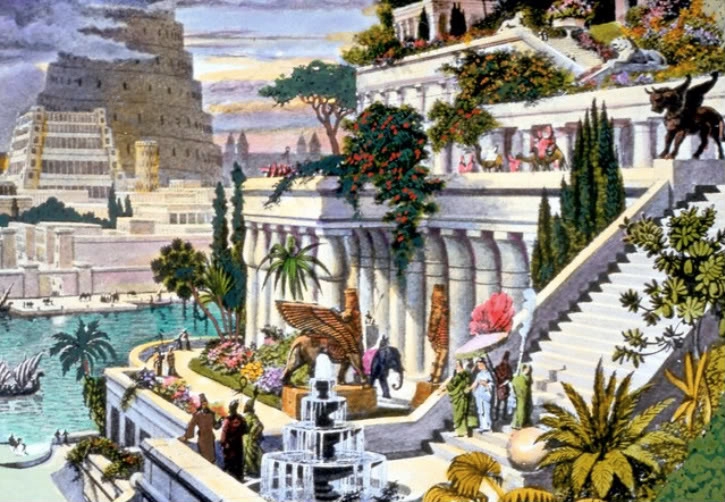The First Great Empire Leaders: Shi Huangdi, Darius, and Nebuchadnezzar
Background information:
Shi Huangdi: The Qin dynasty that he ruled replaced
the Zhou Dynasty. He was the first ruler of this dynasty, so he is known as Shi
Huangdi, which translates into English as “first emperor”. He brought unity to
China by applying Legalist ideas to the empire. Legalism is a Chinese
political philosophy based on the idea that a highly efficient and powerful
government is the key to social order.
Darius: Darius’ father, Cambyses, had ruled for
eight years, but after his death the Persian control weakened. Darius decided
that he should take it upon himself to bring back strength to the Persian
empire. At the time he was just a member of the king’s bodyguard, but with the
help the “Ten Thousand Immortals” (elite Persian soldiers), he regained the
throne and regained the throne.
Nebuchadnezzar: Nebuchadnezzar is known for
restoring the great of Babylon. Babylon had been burned by Sennacherib, an
Assyrian king. But when the Chaldeans defeated the Assyrians and Nebuchadnezzar
became king he restored this great city and invented his hanging gardens, which
is one of the seven wonders of the ancient world .
Compare/Contrast:
Based on their background information,
clearly all of these leaders were great contributors to their empire’s success.
However, they all had different ways of ruling, which made each one of them the
great rulers they were.
Shi
Huangdi was the ruler of China during its period of unification and he unified
this great empire by applying Legalist ideas. He begun this process of
unification by ending all internal battles among the different states in China,
which helped make China stronger and more whole. Next, Shi Huangdi attacked
northern invaders and came out victorious, making China double its original
size. He did many unordinary things unlike the other empire rulers, such as killing
hundreds of Confucian scholars, and burning their books and work. He did this
because Confucianism disagrees with Legalism and Shi Huangdi believed that if
there was no political opposition, then China would become more strong and
unified.
 |
| All of the Persian Empire during Darius' rule. https://espliego.wordpress.com/2013/06/16/darius-the-great/ |
Darius
was another great ruler, who ruled the Persian empire after his father’s death.
Darius’ act of seizing the throne shows just how determined he was. He started
his reign similar to Shi Huangdi’s by ending all internal revolts during the
first three years of his ruling. Darius also focused on government,
establishing an organized administration over the next few years of his reign.
Just like Shi Huangdi he focused on making the empire unified before making his
conquest. After he unified Persia he conquered lands in present-day Afghanistan and even the river valleys in some parts of India. Eventually, the Persian empire
extended over 2,500 miles, controlling lands such as Egypt, Anatolia, and a
part of India.
 |
| The city of Babylon and it's great hanging gardens |
Nebuchadnezzar
ruled the small Chaldean empire, that ruled after they defeated the Assyrians. Nebuchadnezzar
started his time as ruler by unifying the Chaldean empire. He unified the
Chaldeans by restoring the great city of Babylon. This city was surrounded by
thick walls that protected the Chaldeans from invaders. This city’s
highest building was a seven-tiered ziggurat with a height of over 300 feet. This great ziggurat shows how important religion was to the Chaldean empire. However,
he didn’t do much conquering, which led to the downfall of the empire after
shortly after his death.
Work Cited:
Holt McDougal Online, Houghton Mifflin Harcourt Publishing Company, my.hrw.com/tabnav/controller.jsp?isbn=9780547521107.
Matt, although this is an informative post, it isn't exciting to read.
ReplyDeleteThis comment has been removed by the author.
ReplyDeleteMatt, I like the way you had the leaders background information and very detailed. On the other hand the post itself wasn't really appealing lacking color. And this was boring because its basically a page out of a text book. Next time add color and more excitement in your writing.
ReplyDeleteIt had very good and detailed information but had no color and did not pop out to the eye. There could have been more contrast in the way the rulers lead their empire instead of just how they ran their empire. Overall, it was a good blog but just lacked artistic and fun features.
ReplyDeleteYour blog undeniably has great information and detail. However it seemed like it was from a textbook. You didn't ask questions to draw the reader in. Just putting facts defeats the purpose of having a blog, you didn't make it relatable to the reader therefor it was hard to hook them.
ReplyDeletesav, please refrain from using nicknames on the blog discussion post. Your first name is sufficient. Your comment on Matt H's blog is right on! Thank you for phrasing your comments so respectfully and with good intentions.
Delete